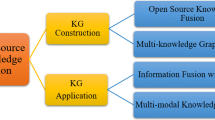Abstract
In a Semantic-Web-like multi-agent environment, ontology mismatch is inevitable: we can’t realistically expect agents created at different times and places by different people to commit to one unchanging universal ontology. Ontology matching seems to be the only solution to such a problem. However, standard techniques for aligning heterogeneous ontologies are based on time-consuming, off-line and often semi-automated processes and pre-suppose full access to the interacting agents’ ontologies. This is far from ideal in situations where agents meet for the first time, interact quickly and have restricted access to other agents’ private information. In this paper we present the Ontology Repair System (ORS), which attempts to match fully-fledged first-order ontologies automatically using incomplete information. Particular emphasis is laid on its semantic matching module, the Semantic Matcher, which provides a solution for lexical mismatches, which are the most common and the most challenging to address. ORS and the Semantic Matcher have been implemented and evaluated, with very promising results.
Similar content being viewed by others
References
Carnap R (1947) Meaning and necessity. University of Chicago Press, Chicago
Frege G (1892) On sense and reference. In: Ludlow P (ed) Readings in the philosophy of language. Zeitschrift für Philosophie und philosophische Kritik. Cambridge, 1997, pp 563–583
García-Silva A, Corcho O, Alani H, Gómez-Pérez A (2012) Review of the state of the art: discovering and associating semantics to tags in folksonomies. Knowl Eng Rev 27(01):57–85. doi:10.1017/S026988891100018X, http://dx.doi.org/10.1017/S026988891100018X
Giunchiglia F, Shvaiko P (2003) Semantic matching. Knowl Eng Rev 18: 265–280
Halpin H (2009) Social meaning on the web: from Wittgenstein to search engines. In: Proceedings of the WebSci’09: society on-line
Halpin H, Lavrenko V (2010) A generative model of tagging, search and social networks. In: Proceedings of the WebSci10: extending the frontiers of society on-line, 26–27 April, 2010, Raleigh, NC, USA
Kripke S (1972) Naming and necessity. Harvard University Press, Cambridge
Laurence S, Margolis E (1999) Concepts and cognitive science. In: Margolis E, Laurence S (eds.) Concepts: core readings. MIT Press, Cambridge, pp 2–81
McNeill F, Bundy A (2007) Dynamic, automatic, first-order ontology repair by diagnosis of failed plan execution. IJSWIS 3: 1–35
Miller G, Beckwith R, Fellbaum C, Gross D, Miller K (2005) Introduction to wordnet: an on-line lexical database. Online at http://courses.media.mit.edu/2002fall/mas962/MAS962/miller.pdf
Niles I, Pease A (2003) Linking lexicons and ontologies: mapping wordnet to the suggested upper merged ontology. In: Proceedings of the 2003 international conference on information and knowledge engineering (IKE 03), Las Vegas
Ogden CK, Richards IA (1923) The meaning of meaning. Harcourt, Brace & World Inc., New York
Qu W, Hu W, Chen G (2006) Constructing virtual documents for ontology matching. In: Proceedings of the 15th international world wide web conference, Edinburgh, pp 23–31
Robertson S, Jones KS (1976) Relevance weighting of search terms. J Am Soc Inf Sci 27: 129–146
Salton G, Wong A, Yang CS (1975) A vector space model for automatic indexing. Commun ACM 18: 613–620
Shvaiko P, Euzenat J (2012) Ontology matching: state of the art and future challenges. IEEE Trans Knowl Data Eng
Vander-Wal T (2005) Explaining and showing broad and norrow folksonomies. Blog post, online at http://www.vanderwal.net/random/entrysel.php?blog=1635
Wittgenstein L (1953) Philosophical investigations. 2001
Author information
Authors and Affiliations
Corresponding author
Rights and permissions
About this article
Cite this article
Togia, T., McNeill, F. On-the-fly repair of structural and lexical ontology mismatches in multi-agent systems. Artif Intell Rev 40, 175–191 (2013). https://doi.org/10.1007/s10462-012-9352-0
Published:
Issue Date:
DOI: https://doi.org/10.1007/s10462-012-9352-0




